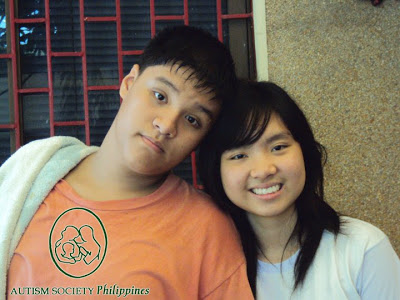By: Dang Koe, ASP Chair Emeritus
Vell Baria is 15 years old, a junior student at St Mary’s Academy. With a soulful voice, she hits high notes without effort. A “birit” queen during her stage performances and TV guestings, she also composes songs.
Thara Santiago is 15 and half years and is now a high school student of Holy Child of Jesus Academy in Biñan. She also has a powerful voice which enables her to render Beyonce’s “Listen” with brilliance.
Nica Escasinas is 16 years old, a high school student. She has the voice and the groove of a concert queen — from love songs to rock songs. Not only can she sing and dance, she also plays the guitar, drums and piano. And she looks and moves like a model.
Individually, they are incredible singers. Together, they are an unbelievable powerhouse of vocal prowess. The three girls not only share the same passion and talent in singing. They also belong in the same spectrum....autism.
I named them the ASP Dream Girls, a take-off from the tagline of Autism Society Philippines “Sharing hopes and building dreams”. Later on they were also being called the Autism Divas. Sometimes during their performances, it can feel like you are handling divas. Ask their “talent manager.” Noemi Viado, or Teacher Ging, who runs GS Option House for Autism in Binan, Laguna. Also a mother of a 24-year old young lady with autism, Teacher Ging is on her second term as board trustee of ASP.
How did you discover the talents of the ASP Dream Girls?
Thara is my student at GS Option House for Autism. When she started with us at 7 years old, she was hyperactive and had language delay. But she would always listen to children’s songs being played in the classroom. She had her first performance at UPLB when she was 10. Since then, I continue training her to be a singer, especially for her performances during different shows and programs of ASP.
I met Vell when she had her first major solo performance during the ASP National Conference in 2007. While working with Thara, I also reached out and helped Vell prepare for the show. And such voluntary coaching went on during succeeding ASP shows where the two girls were always invited.
Then two years later, ASP requested if the two girls can do a duet for ASP’s 2009 National Conference. I requested voice coach Jenzen Turica to help me with their songs, while I took care of managing their behaviors in public. Since I saw how talented they are, I already decided then to help them via Social Behavioral Therapy during their practices.
A month later, Thara and Vell were guest performers at “Echoes of Dreams” concert held in Araneta Coliseum with Lea Salonga. There was another singing talent with autism — Nica. ASP took notice of her and included her in its next event.
 |
| the ASP Divas: Vell, Thara and Nica |
How and when did the three divas become a trio?
While they were singing last January, a friend asked me if they can perform in trio. I immediately gathered them backstage and told them to prepare a song. They were excited! Vell arranged their voices — she took the soprano, Nica alto, and melody for Thara. The outcome was amazing and wonderful! They were able to blend their voices in their own styles and timing. That was the beginning of the “ASP Dream Girls.” Vell, Thara and Nica are now even more applauded everywhere they perform solo and trio. And there is that usual question: “do they have autism?”
How do you spot true talent?
I have an eye to see the splinter skills and talents or intelligence of each person with autism (PWA) I am working with. I look through the children’s interests and obsession. I see the gifts of God through their actions.
Most of them have natural talents. I remember a student of mine who would hold a toy piano all day long. He is now a pianist. Another student, at age two, would just hum and hum without interaction. He became a singer. These are some signs that we can use to lead us in discovering PWA talents and abilities, and which we can develop in the future.
But the first thing to do is to work on their deficits in language, behavior and social skills. After that, whatever talents they have, I believe, will just come out. Nurturing the talents of PWAs needs a lot of motivational procedures. One of my students will work on his academic programs if he knows he can take his voice lesson after.
Sometimes a true talent can’t be easily seen. It requires rehearsals, practices, and encouragement from his environment. Most PWAs need a lot of appreciation (like applause from the audience) for them to achieve their fullest potentials in terms of skills and abilities that God has given them.
How does it feel being an educator and now a “talent manager” of performers with autism?
As an educator, it is my goal to bring out the maximum potentials of my students. A singing career is also an educational attainment, like for our three divas. For me, being an educator compliments my being a “talent manager.” Both undertaking can help me develop the needs of a special person. I love to teach, it is my passion to see kids learning. I consider my teaching skills as a gift from God, and that’s the reason why I’m here in this field.
As an educator and a “talent manager”, I realize my mission of fulfilling their dreams...” na maging sikat”, as Vell said.
What was the most challenging situation that has happened in managing your talents?
It was the “bathroom tantrums” at PICC where the ASP Dream Girls were to perform during the International Autism Conference last February.
Before the show, Vell told me she was tensed and feeling nervous to perform as a trio. She said it was hard for her to adjust with the other girls’ voices and could not do it in her own style. It turned out she was frustrated because there was only one production number for them. She wanted to have a solo performance and could not accept not having one!
So while we were preparing and changing clothes in the bathroom, Vell suddenly decided she was not joining the act, and Nica seconded! Then the three divas were shouting, crying and displaying resistant behaviors! The show’s director already told me to cancel the performance if the three girls would not behave and cooperate for their voice blending.
I started to panic and made behavioral modification strategies, such as reward system (using my own jacket as a reinforcer for Vell because she wanted it), motivational procedures (praises and promises for Nica), and even privilege lost (no computer for Thara). My prayer was answered and the girls started to comply. The three divas were already fine and calm when it was “show time”.
As the ASP Dream Girls were singing, I just sat and looked down, trembling. Then I looked up again when the conference delegates, including the foreign experts, started clapping loudly. I felt like a winner! I was so happy to see the girls being hugged and congratulated by the VIPs. I heard foreign guests’ comments: superb, fantastic, wonderful, talented girls, great style!
Recently I had a similar experience during the taping of 700 Club Asia. I came up with a contract between me and one of the girls which made the situation controllable, and the show successful.
But in spite of these challenges, I am so proud of these three girls with autism. They give inspiration to the whole world. It’s really amazing to be part of the changes in their lives.
What other teaching strategies do you use to manage your talents with autism before, during and after shows?
In the past two decades of my hands-on teaching PWAs, I strongly believe that their talents are gifts from God. So I start preparing the girls with a prayer, which they usually request themselves before a show starts. Praying has actually become a “routine” for the four of us.
A prompt using visuals or written cues are needed to make them feel comfortable while waiting for the show to start. Constant reminders or warnings on what to do on stage are also needed.
I am not really concerned about their voices and songs since I know they can really sing well. I focus more on correcting odd behaviors, managing frustrations and other changes during events. Since these behaviors can occur anytime, depending on their moods and their understanding of the environment, I need to prepare for the situation. Social manners and social interactions are also being monitored every time the three girls are in public places.
My educational background as a special teacher and as a behavioral therapist gives me the confidence to handle them when non-compliant and manipulative behaviors occur. I have learned that social stories, what-to-do stories, role modeling, rewards and positive reinforcements are effective strategies to control their social deficits and odd behaviors. The use of negotiation and a contract between me and the girls help them cope with stress.
Knowing the deficits of autism, my role for the three girls is very challenging. And I am always rewarded with their outstanding performances.
What advice can you give to aspiring singers, dancers with autism? To their parents?
There are always big opportunities for talented PWAs. I have seen lots of them developed from simple abilities to admirable talents. I had a 2-year-old student playing a toy drum every time he was inside the classroom, and now he is a band member. I have a student who will not talk nor say mama and papa but can sing a lot of nursery songs. Isn’t it wonderful and amazing to know that through their obsessions they can become talented performing artists?
To the parents, like me, please nurture whatever simple skill or interest that your child is displaying in front of you. It might lead to what the ASP Dream Girls are enjoying now. Patience, perseverance and enduring challenges are the keys to achieve your dreams for your child. Consider adopting multiple intelligence and skills while teaching them. They might excel in music, arts, dance, musical instruments and drama.
Taking care of our children with autism develops our own skills and godly character traits necessary in our everyday life. To serve and build a community for them is a life-long commitment for us, but doing so also brings us so much joy. With the help of the Divine Providence, the government, the families affected, ASP and schools like ours, let us collaborate to achieve our dreams for our children with autism.
ASP monthly seminar features one of the country’s leading speech pathologists, Mae Sadicon, to talk about “Speech, Language and Communication” on Aug. 28, 9am to 12 noon, at the Asian Social Institute in Malate, Manila. For more details, call
7-903-5496 or log on to
autismsocietyphilippines.org or you can email autismphils@gmail.com.
*** Watch the interview of ASP Divas on 700 Club Asia on August 19, Thursday QTV Channel 11 from 11-pm to 12 midnight.


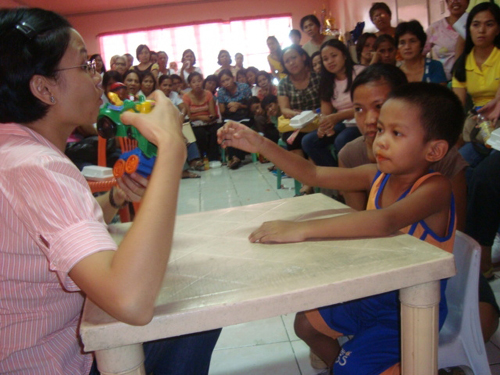
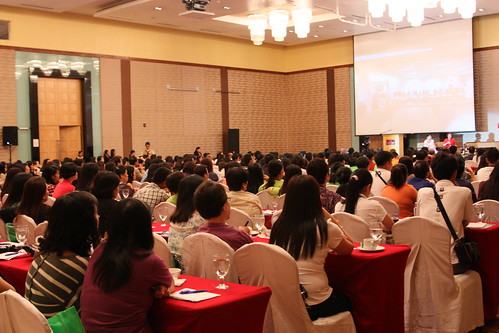

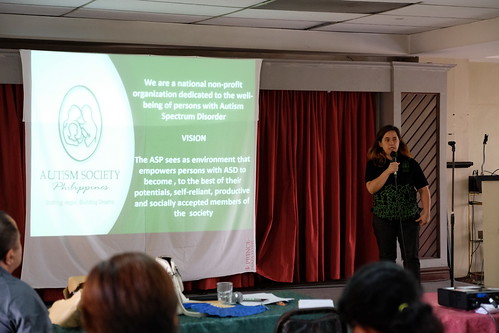
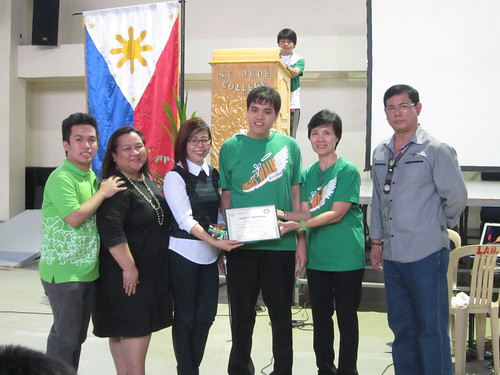
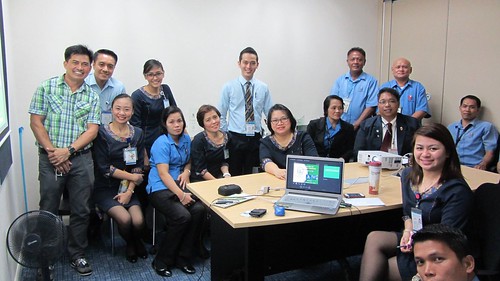




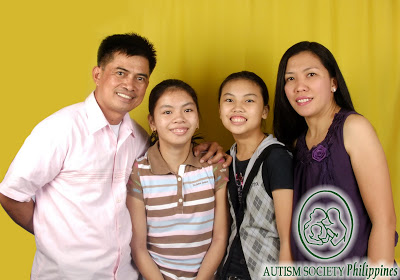







 Posted in: awareness
Posted in: awareness




